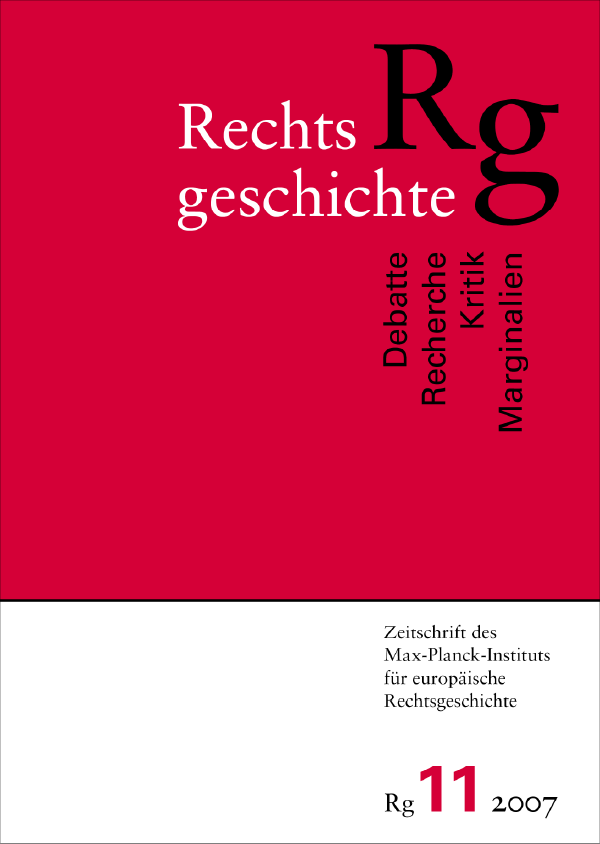Ohne Gesetz kein Eigentum?
Zur Konzeption des Eigentums bei Hume und Rousseau
DOI:
https://doi.org/10.12946/rg11/094-109Abstract
The current German debate on property as a fundamental right is dominated by a perspective in which property is exclusively formed by positive law. This perspective can, however, be questioned by contrasting it with the conceptions of property developed by Hume and Rousseau. For both conceptions, though otherwise entirely divergent, coincide in refuting the purely positivistic approach: whereas Hume regards property primarily as a result of pre-legal social conventions, Rousseau forms his idea of property in the context of the volonté générale, thereby conceiving of property as a post-legal phenomenon.
Downloads
Veröffentlicht
Zitationsvorschlag
Ausgabe
Rubrik
Lizenz
Copyright (c) 2007 Autor/in

Dieses Werk steht unter einer Creative Commons Namensnennung - Nicht-kommerziell - Keine Bearbeitung 3.0 International -Lizenz.





